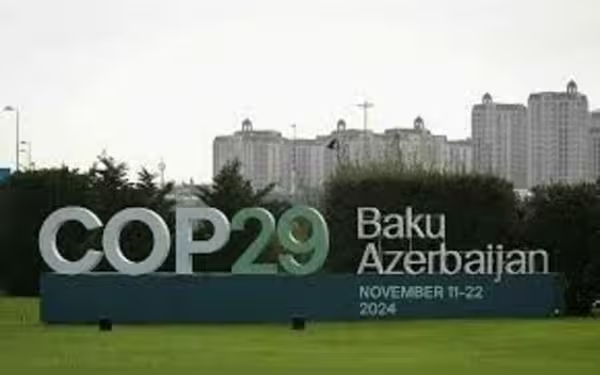Saturday, November 16, 2024 05:34 PM
Carbon Trading Stalemate Threatens Global Climate Action
- COP29 aims to finalize carbon trading rules.
- 91 agreements established between 56 countries.
- Concerns over integrity and regulations persist.
 Image Credits: dawn
Image Credits: dawnCOP29 faces challenges in finalizing carbon trading rules, impacting global climate efforts.
As the world grapples with the pressing issue of climate change, the concept of carbon trading has emerged as a potential solution to help countries meet their greenhouse gas emission targets. Carbon trading allows nations and companies to offset their emissions by investing in projects that reduce carbon output elsewhere. This system is particularly crucial as countries prepare for the upcoming climate summit in Azerbaijan, where they will discuss the establishment of a global framework for trading carbon offset credits.
The climate summit, known as COP29, will see representatives from nearly 200 countries convene to negotiate rules that could shape the future of carbon trading. The Paris Agreement, which aims to unite countries in the fight against climate change, includes provisions for carbon trading under Article 6. This article outlines two main options: one allows countries to create bilateral agreements, while the other proposes a centralized system managed by the United Nations.
Despite the potential benefits of carbon trading, reaching a consensus on the rules has proven challenging. At the previous COP28 summit in Dubai, negotiators were unable to finalize the details necessary to operationalize a central carbon trading system. Some countries, like Japan and Indonesia, have opted to move forward with their own bilateral agreements, even in the absence of clear guidelines. As of October, the UN reported that 91 agreements had been established between 56 countries, indicating a growing interest in carbon trading.
However, concerns remain regarding the integrity of these agreements. Buyers worry about the lack of robust regulations that could prevent countries from altering the terms of their deals or double-counting emissions reductions. To address these issues, officials at COP29 are eager to secure an early agreement on Article 6, which would establish necessary checks and balances to ensure that emissions reductions are genuine and verifiable.
As discussions unfold, countries will also debate whether the UN's central registry should facilitate transactions or serve solely for accounting purposes. An expert group has already developed a framework to ensure that carbon credits meet basic quality standards, but the final decision rests with the countries at COP29. If they can resolve key points during this summit, the carbon trading system could be operational as early as 2025.
The outcome of COP29 could significantly impact global efforts to combat climate change. A successful agreement on carbon trading could provide a much-needed mechanism for countries to collaborate in reducing emissions. As the world watches, it is crucial for nations to prioritize transparency and accountability in their climate actions. The stakes are high, and the time to act is now.













